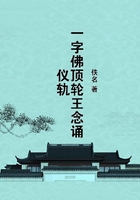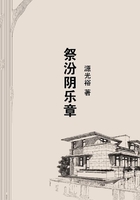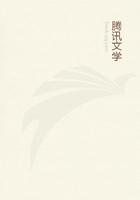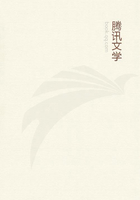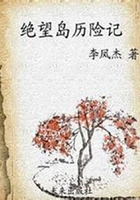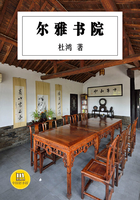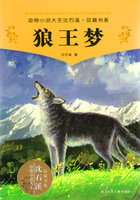It does not much matter what these modern haters of the cross may dare to say; but, assuredly, that which they deny, denounce, and deride, is the cardinal doctrine of our most holy faith, and is as clearly in Scripture as the sun is in the heavens. Beloved, as we suffer through the sin of Adam, so are we saved through the righteousness of Christ. Our fall was by another, and so is our rising again: we are under a system of representation and imputation, gainsay it who may. To us, the transference of our sin to Christ is a blessed fact clearly revealed in the Word of God, and graciously confirmed in the realizations of our faith. In that same chapter of Isaiah we read, "Surely He hath borne our griefs, and carried our sorrows," and we perceive that this was a matter of fact, for He was really, truly, and emphatically sorrowful; and, therefore, when we read that "He bare our sins in His own body on the tree," we dare not flitter it away, but assuredly believe that in very deed He was our Sin-Bearer. Possible or impossible, we sing with full assurance--"He bore on the tree the sentence for me."
Had the sorrow been figurative, the sin-bearing might have been mythical; but the one fact is paralleled by the other. There is no figure in our text; it is a bare, literal fact: "Who His own self bare our sins in His own body on the tree." Oh, that men would give up cavilling! To question and debate at the cross, is an act near akin to the crime of the soldiers when they parted His garments among them, and cast lots for His vesture.
Note how _personal_ are the terms here employed! How expressly the Holy Ghost speaketh! "Who His own self bare our sins in His own body." It was not by delegation, but "His own self"; and it was not in imagination, but "in His own body." Observe, also, the personality from our side of the question, He "bare our sins," that is to say, my sins and your sins. There is a sort of cadence of music here,--"His own self," "our sins." As surely as it was Christ's own self that suffered on the cross, so truly was it our own sins that Jesus bore in His own body on the tree. Our Lord has appeared in court for us, accepting our place at the bar:
"He was numbered with the transgressors." Nay, more, He has appeared at the place of execution for us, and has borne the death-penalty upon the gibbet of doom in our stead. _In propria persona_, our Redeemer has been arraigned, though innocent; has come under the curse, though for ever blessed; and has suffered to the death, though He had done nothing worthy of blame. "He was wounded for our transgressions, He was bruised for our iniquities: the chastisement of our peace was upon Him; and with His stripes we are healed."
This sin-bearing on our Lord's part was _continual_. The passage before us has been forced beyond its teaching, by being made to assert that our Lord Jesus bore our sins nowhere but on the cross: this the words do not say. "The tree" was the place where beyond all other places we see our Lord bearing the chastisement due to our sins; but before this, He had felt the weight of the enormous load. It is wrong to base a great doctrine upon the incidental form of one passage of Scripture, especially when that passage of Scripture bears another meaning.
The marginal reading, which is perfectly correct, is "Who His own self bare our sins in His own body to the tree." Our Lord carried the burden of our sins up to the tree, and there and then He made an end of it. He had carried that load long before, for John the Baptist said of Him, "Behold the Lamb of God, which taketh away" (the verb is in the present tense, "which taketh away") "the sin of the world" (John i. 29). Our Lord was then bearing the sin of the world as the Lamb of God. From the day when He began His divine ministry, I might say even before that, He bore our sins. He was the Lamb "slain from the foundation of the world;" so, when He went up to Calvary, bearing His cross, He was bearing our sins up to the tree. Yet, specially and peculiarly in His death-agony He stood in our stead, and upon His soul and body burst the tempest of justice which had gathered through our transgressions.
This sin-bearing is _final._ He bore our sins in His own body on the tree, but He bears them now no more. The sinner and the sinner's Surety are both free, for the law is vindicated, the honour of government is cleared, the substitutionary sacrifice is complete. He dieth no more, death hath no more dominion over Him; for He has ended His work, and has cried, "It is finished." As for the sins which He bore in His own body on the tree, they cannot be found, for they have ceased to be, according to that ancient promise, "In those days, and in that time, saith the Lord, the iniquity of Israel shall be sought for, and there shall be none; and the sins of Judah, and they shall not be found" (Jeremiah i.
20). The work of the Messiah was "to finish the transgression, and to make an end of sins, and to make reconciliation for iniquity, and to bring in everlasting righteousness" (Daniel ix. 24). Now, if sin is made an end of, there is an end of it; and if transgression is "finished", there is no more to be said about it.
Let us look back with holy faith, and see Jesus bearing the stupendous load of our sins up to the tree, and on the tree; and see how _effectual_ was His sacrifice for discharging the whole mass of our moral liability both in reference to guiltiness in the sight of God, and the punishment which follows thereon. It is a law of nature that nothing can be in two places at the same time; and if sin was borne away by our Lord, it cannot rest upon us. If by faith we have accepted the Substitute whom God Himself has ac-cepted, then it cannot be that the penalty should be twice demanded, first of the Surety, and then of those for whom He stood. The Lord Jesus bore the sins of His people away, even as the scape-goat, in the type, carried the sin of Israel to a land uninhabited. Our sins are gone for ever. "As far as the east is from the west, so far hath He removed our transgressions from us."

